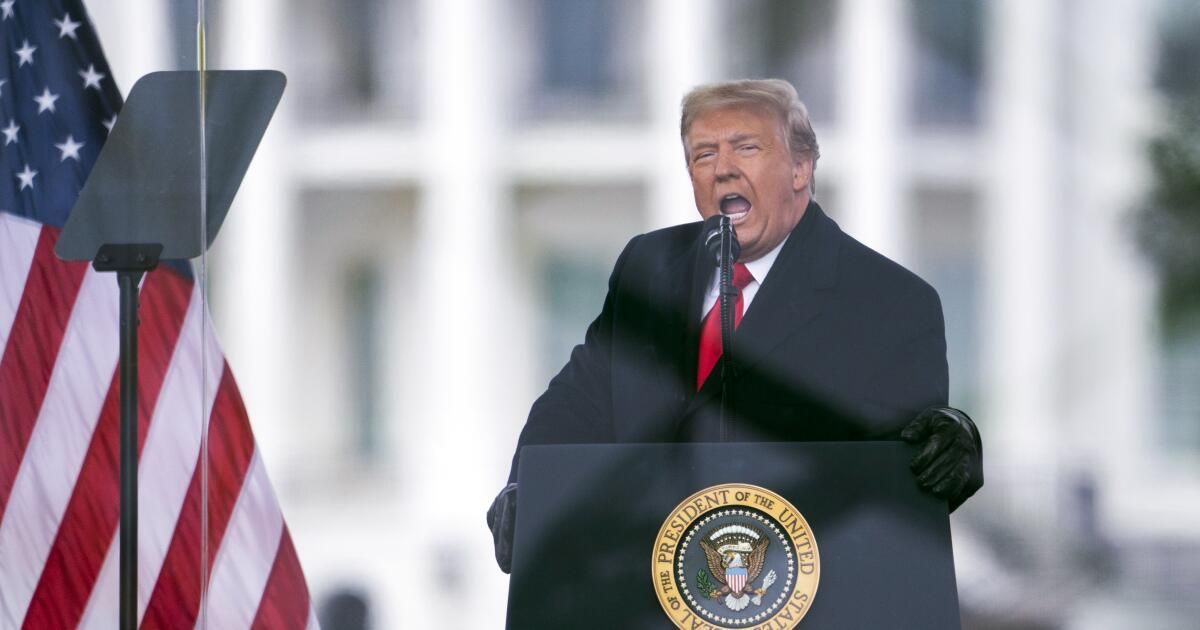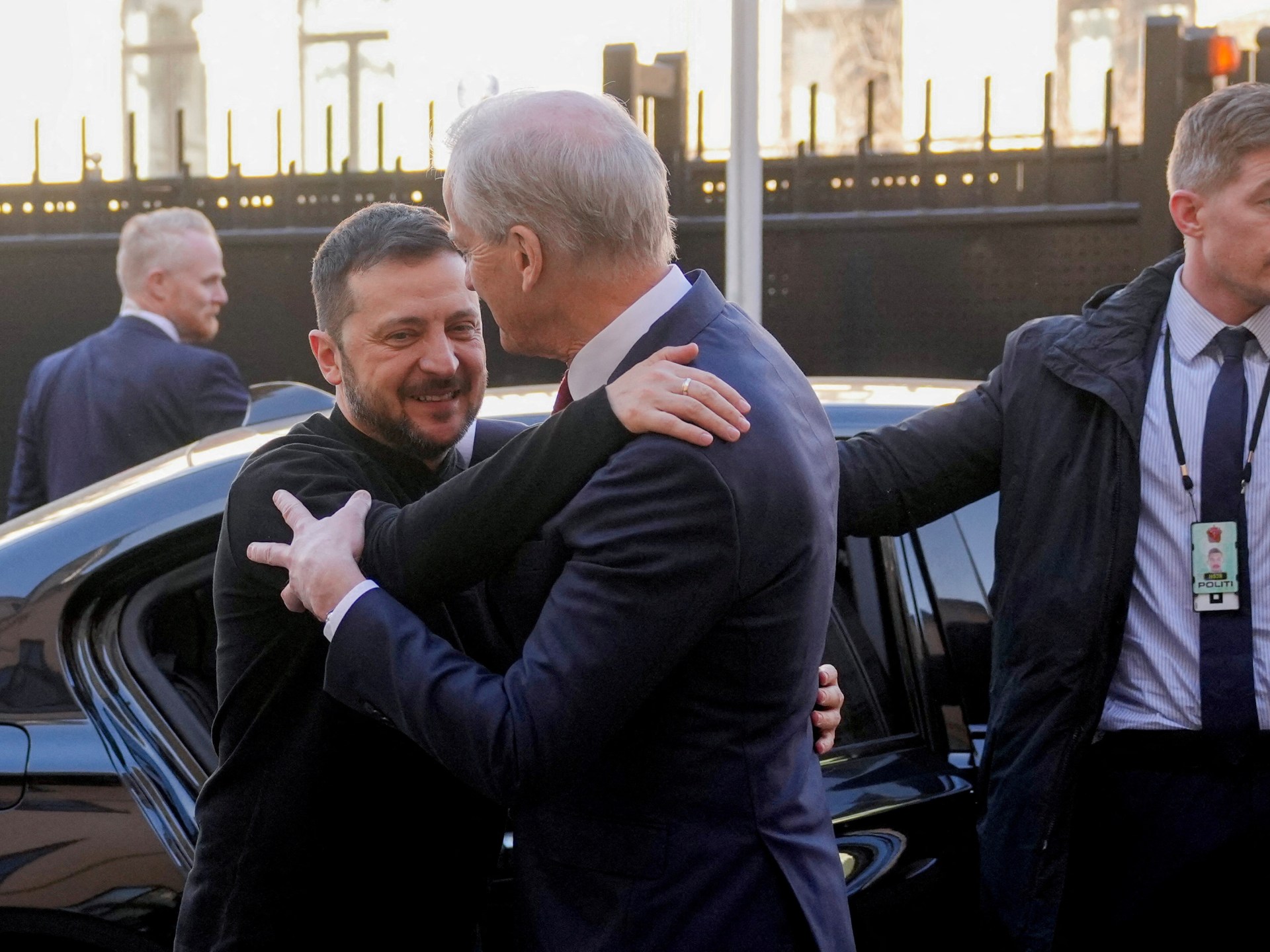Former President Trump on Wednesday appealed to the U.S. Supreme Court to quickly overturn a Colorado state court decision that would keep him out of the election there on the grounds that he participated in an insurrection against the United States.
Trump, who is leading in polls for the 2024 Republican presidential nomination, argued that voters should decide who is elected to the nation’s highest office and that state judges should not decide his eligibility. His attorneys wrote that Colorado’s decision “would unconstitutionally disenfranchise millions of voters in Colorado and would likely be used as a template to disenfranchise tens of millions of voters across the country.”
While they did not propose a timetable, lawyers said it was crucial for the court to address the issue urgently.
Trump’s team offered several reasons for overturning the Colorado court. One would be to rule that the president was not covered by Section 3 of the 14th Amendment, an argument that was adopted by a lower-level Colorado trial judge.
“Nothing President Trump did was ‘engaged’ in the insurrection,” they said in defending his actions before the insurrection at the US Capitol on January 6, 2021. “President Trump never told his supporters that they entered the Capitol, nor in his speech at the Ellipse or in any of his statements or communications before or during the events at the Capitol.
The Colorado Supreme Court became the first in the country to hold that Trump is disqualified from holding office again. By a 4-3 vote, state judges said Trump “engaged in an insurrection” in a failed attempt to overturn his 2020 election loss.
But state judges agreed to stay their ruling while Trump appealed to the U.S. high court. As a result, his name will appear on the state’s Republican primary ballots.
The broader question is whether the former president can be disqualified from holding future office because he violated a provision of the 14th Amendment adopted after the Civil War.
The amendment, best known for extending equal rights and liberties to all Americans, also sought to prevent former Confederates from holding public office again. Section 3 says: “No person shall…hold any office, civil or military” if, “having previously taken an oath…to support the Constitution of the United States, he has participated in any insurrection or rebellion against the same. “
For the past year, law professors and judges have been debating whether that provision applies to the Jan. 6 mob attack on the U.S. Capitol and, if so, how.
Trump has not been charged with inciting an insurrection, although he faces other lesser criminal charges, including conspiracy to obstruct an official proceeding.
Two years ago, the House impeached him for his role in the Jan. 6 attack, and 57 senators found him guilty. That was 10 votes short of the two-thirds of the Senate needed for a conviction, which meant Trump was found not guilty of insurrection.
In response to a lawsuit filed by several Colorado Republicans, a state trial judge and a majority of the state Supreme Court said the evidence clearly showed that the former president used false claims of voter fraud to persuade his most ardent supporters that the elections had been stolen.
At his urging, tens of thousands came to Washington on January 6, 2021 and then marched on the Capitol seeking to stop the certification of Joe Biden’s victory.
“The record amply established that the events of January 6 constituted a public and concerted use of force or threat of force by a group of individuals to hinder or prevent the United States government from taking the actions necessary to achieve the peaceful transfer of power in this country. ” the Colorado judges wrote. “This constituted an insurrection.”
Furthermore, the insurrection was fomented by the former president, they said. “President Trump’s direct and express efforts, over several months, urging his supporters to march to the Capitol to prevent what he falsely characterized as an alleged fraud on the people of this country were indisputably open and voluntary. Furthermore, the evidence amply demonstrated that President Trump undertook all of these actions to aid and further a common unlawful purpose that he himself conceived and put into action: to prevent Congress from certifying the 2020 presidential election and to stop the peaceful transfer of power.”
Finally, they dismissed the legal claim that the presidency is not covered by Section 3 of the 14th Amendment.
“President Trump asks us to hold that Section Three disqualifies all but the most powerful insurrectionist oath-breakers, and excludes oath-breakers from virtually all offices, both state and federal, except the most powerful.” top of the country. “Both results are inconsistent with the plain language and history of Section Three,” they said.
Maine’s secretary of state said last week that she agreed with Colorado’s ruling and would remove Trump’s name from her state’s primary ballot.












